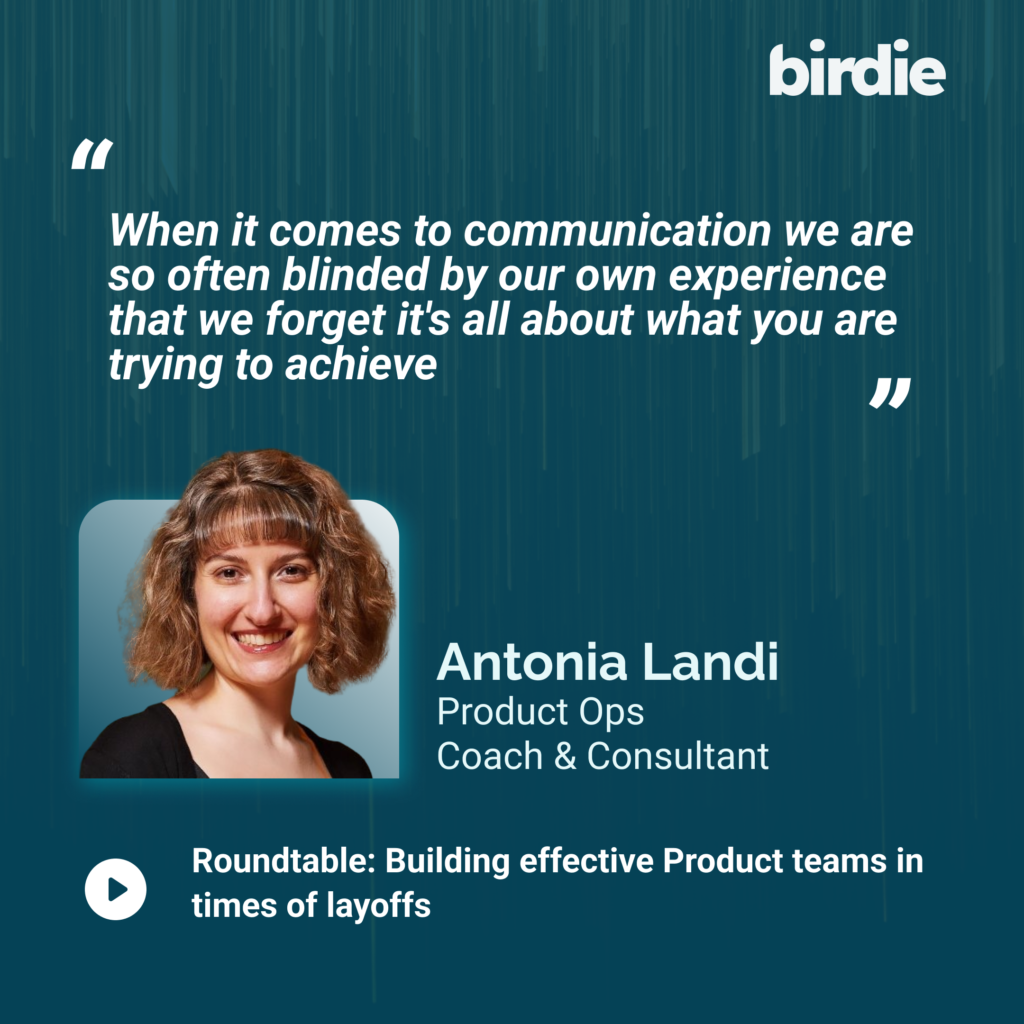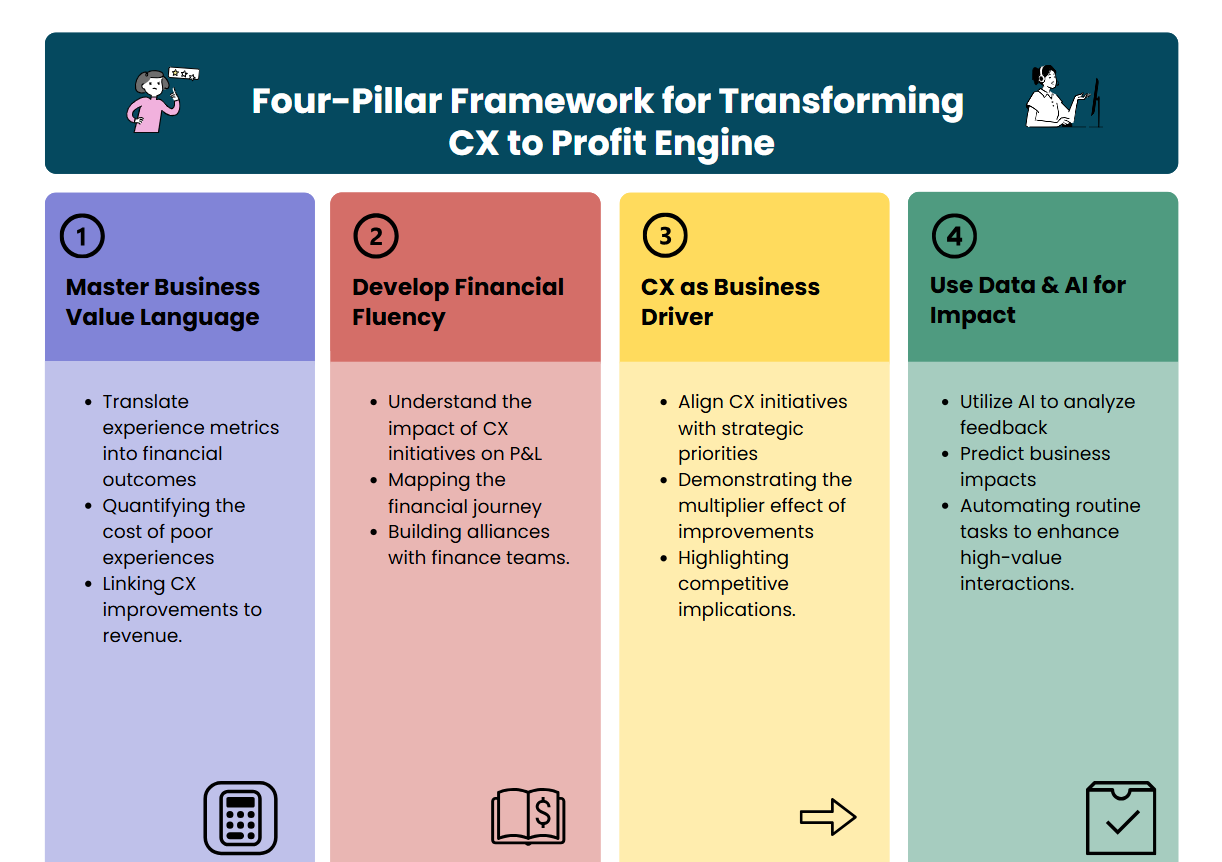
https://www.youtube.com/watch?v=s-TNbruByJ0
Tech layoffs, GPTChat, and companies under pressure to be more effective and do more with less - we definitely can't say these are easy times.
The need for doing more with less combined with the urgency to generate new streams of revenue puts pressure on product leaders and requires them to prioritize and focus on high-impact initiatives.
In this conversation with product experts Antonia Landi, David Pereira, and Hugo Fróes, our co-founder Rodrigo Pantigas asked them how to build more effective product teams and unlock efficiency along the product management process.
Here are the key takeaways from this conversation:
- The role of Product hasn't changed - it just got back to what it should always have been
- To be a great PM, be entrepreneurial and focus on outcomes
- People are the ones solving problems - tools should only be enhancers of that
- Product ops can take a leading role in making companies more efficient
- Unlock efficiency by relying on data, knowing your product principles, and building trust
Now let's get deeper into them
1. The role of Product hasn't changed - it just got back to what it should always have been
"The nature of product won't change", but we will need to prove that something will lead the organization to a better place financially speaking." This is how Antonia Landi explained what she thinks about what will change in product management given this economic downturn. For her, PMs will now need a strong business case if they want to experiment with something, and that's good.
Echoing what she said, David Pereira adds that PMs have been in a build trap, acting more as backlog managers whose main concern is meeting deadlines rather than delivering value. For him, we will enter an era where product teams will need to "focus more on product discovery, learn what creates value, and ensure that we are not wasting our energy in something that is not gonna help actually deliver business outcomes".
Jumping right in, Hugo continues: "we actually have to be more conscious about how we do Discovery right so we can't be spending weeks or months discussing - there is a need for focus so you can make money."
He continues by saying that product management was always about solving user problems and putting the customer first, but that this sentence wasn't complete: "the whole sentence is that we need to solve user problems in a way that serves the business, and now that second part of the sentence is becoming more prevalent."
2. To be a great PM, be entrepreneurial and focus on outcomes
When asked about important skill sets for PMs in this new context, all speakers agreed that the burst of this bubble of growth is also affecting PMs, who were previously moving up in the career ladder with less effort and effectiveness.
For Hugo Fróes, the people who will thrive are the ones who are "connected to metrics, data, and insights that are coming from customers." He poses that as a big challenge as these should be used to really getting to the gist of the actual problem.
David adds that a great PM "is the one who can quickly drop the ideas unrelated to what you are pursuing because there will be many things ahead of you and you need to drop the ones that are a distraction". He sees that now, more than ever, the best PMs will be the entrepreneurial ones - those who focus on one thing at a time, make decisions, and communicate them clearly.
Reinforcing the importance of communication, Antonia points out that that is probably one of the most important aspects of great product management: "when it comes to communication we are so often blinded by our own experience that we forget it's all about what you are trying to achieve, who needs to read it, and how can you make sure that it's delivered in a format where they will actually read it."

3. People are the ones solving problems - tools should only be enhancers of that
As in any conversation nowadays, chatGPT and product tools were discussed by our panelists, and there was a consensus around how many tools - especially AI-based ones - can be an enhancer of a human being's ability, but not something that should replace their thought process.
Here is Hugo: "I've been playing with chatGPT and it helps me think through an idea or get a different perspective on what I was thinking, but I know I can challenge it. And if that changes someday, what will happen is that I will stop growing, I won't learn, and I will stagnate. I also have my human chatGPTs, like Antonia."
The human chatGPT herself continued: "I also love chatGPT for brainstorming; maybe it'll come up with a different perspective or maybe it'll actually confirm that I was on the right path. I saw some very interesting things, like summarizing user research or just asking it for competitive analysis, and that's a really interesting jumpijung off point but you cannot stop there." To what David added: "the fear I have is about the shortcuts because some things they just take time and we have to accept that."
And the thought is the same when it comes to product tools. For Antonia, there are no essential tools except for maybe the ones you need to communicate: "I am very strongly against saying that this is the core tool stack of any good PM because it's so dependent on the problems you're
trying to solve".
David strongly agrees, saying that "the best tool you can have is between your ears - it's your brain and your mindset." For him, it's really about the thinking process someone has, their methods, and what they want to achieve. Only after that is clear you can start thinking about and looking for the right tool for that case - and not the other way around.
For Hugo, you should always choose the tools to help your process - and not adapt your process to a tool. "I suggest people to always approach first the process, figure out what you want to do, how you want to achieve the things you want to achieve, and then maybe decide if there is a tool that solves this."
But when it's the right time to look at tools? Is there a formula? For our speakers, you need to ask yourself two crucial questions:
Does this problem exist?
Is this problem acute and frequent enough to spend money on a tool that solves it?
4. Product Ops can take a leading role in making companies more efficient
When it comes to how Product Ops can impact - and be impacted by - what is happening, Antonia believes that are two ways of seeing things. First, the economic downturn has undoubtedly affected product ops roles: "we are among the first affected by layoffs because it's a supporting role and because we're not yet at the point where we can say we are an established function - a lot of companies are still taking bets on us".
On the other hand, she sees this as a moment where product ops folks could have the highest impact on organizations: "this is actually the time where we could be the most useful as companies need to rediscover best ways of working". To which Hugo adds: "I would argue that it's the perfect time for you to hire even more Ops people rather than letting them go. We're talking about reducing waste, increasing efficiency and effectiveness in the way we do things - and product ops focuses exactly on how can teams be more effective in what they produce and how they communicate and how they connect".
He continues by saying that, as with every hype, there is a trend where companies feel they need to hire an ops person just because everyone is hiring. But truth is that not every organization nor everybody is ready for that role: "a lot of people still have to build up that knowledge and that baggage of being able to challenge ways of working, which is hard in any organization, small or big."
Agreeing with what was being said, David finishes by saying that he doesn't want "people doing fake things for the sake of doing them", and that challenging is a big piece of it.
5. Unlock efficiency by relying on data, knowing your product principles, and building trust
Going back to where the discussion started, great product management nowadays will encompass, more than ever, understanding your user needs and relating that to your business strategy to deliver value to both. That means being able to collect data, transform it into customer insights, and use it to take action that will drive great business results.
The lack of effective knowledge management that ensures that user feedback, learnings, and insights are shared across different teams is definitely an enemy to be beaten as it makes that process harder and less effective. But it's not the only one.
For Hugo, one thing that is preventing product teams from becoming more effective is not talking about product principles. Knowing and agreeing on what are the core values that guide your product decisions makes everything easier, he says: "if you have this it accelerates a decision and it improves collaboration because everyone knows the direction we are going".
Antonia argues that the excess of prioritization frameworks or stakeholder management maps is making people forget one thing: "we're just humans working with other humans, doing things for other humans." For her, building trust and giving autonomy is also a big part of it, and it needs to be combined with focus.
Do you feel that you're spending too much time trying to get insights from user feedback? It might be the time to look for a feedback analytics platform.








